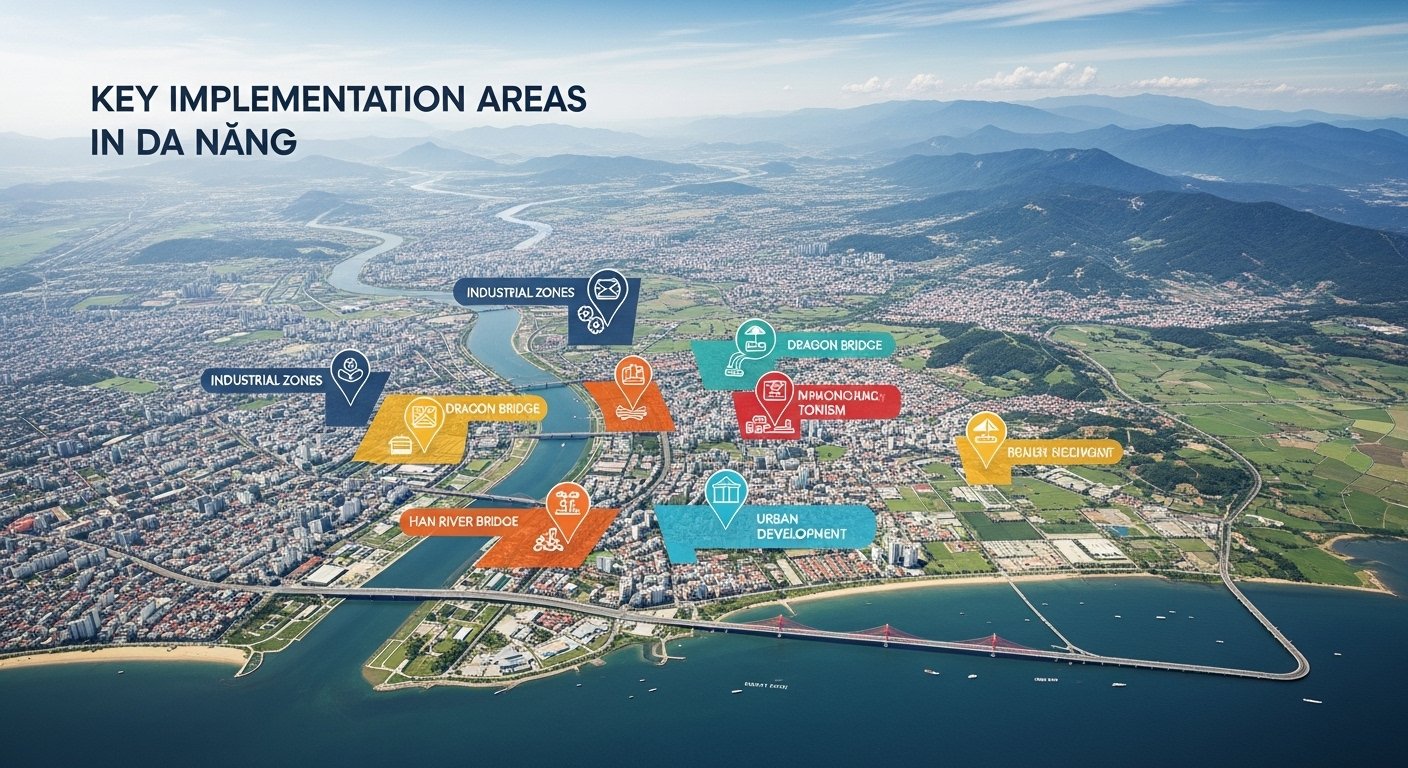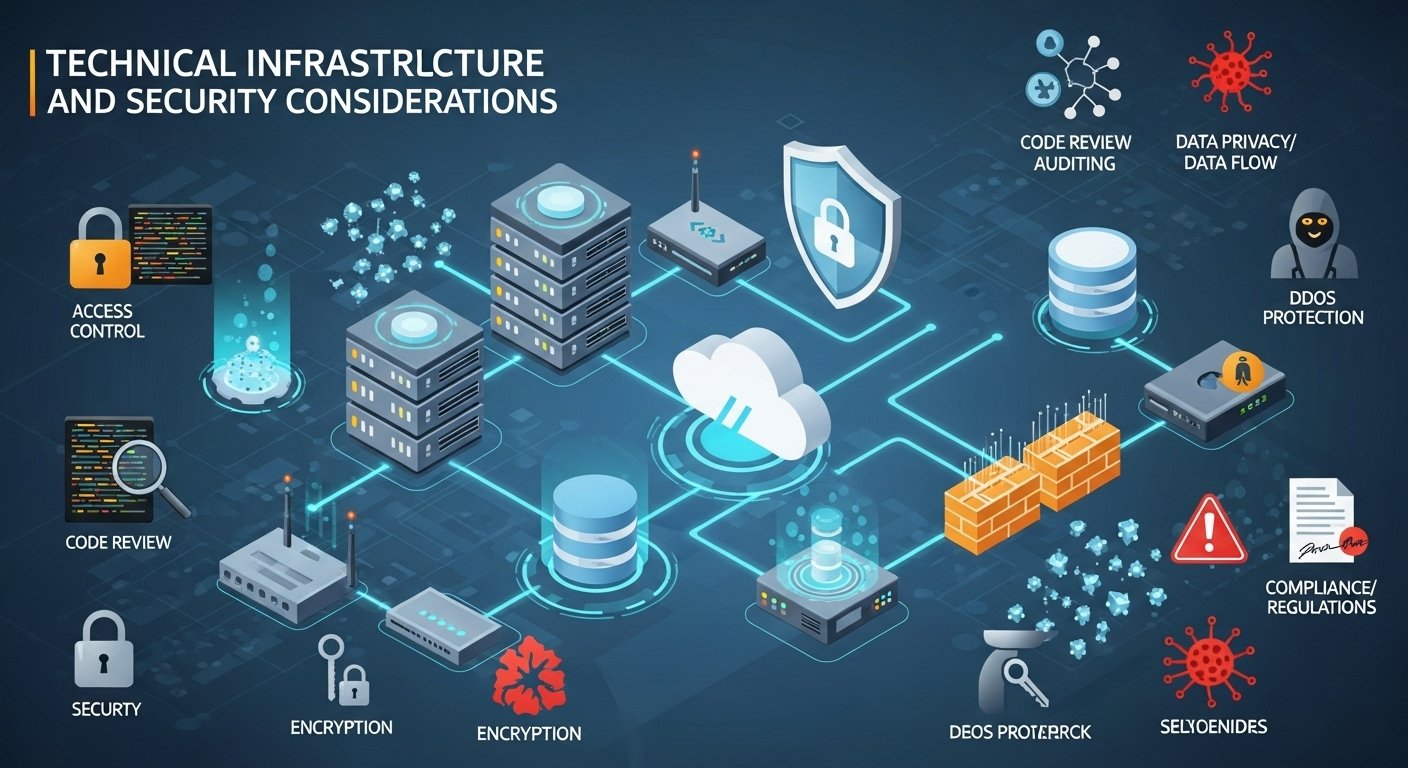
Distributed ledger technology to enhance transparency, efficiency, and citizen engagement in public services. As cities worldwide grapple with modernizing their infrastructure and improving administrative processes, this partnership offers a compelling blueprint for the future of digital governance.
Da Nang, Vietnam’s fourth-largest city and a rapidly growing economic hub, has consistently demonstrated forward-thinking approaches to technology adoption. The city’s leadership has recognized that traditional governance models often struggle with issues of transparency, data silos, and bureaucratic inefficiency. By joining forces with Tether. Da Nang is positioning itself at the forefront of a blockchain revolution that could transform. how citizens interact with government services.
The Partnership Framework
The collaboration between Tether and Da Nang City establishes a comprehensive framework for implementing blockchain solutions across multiple facets of municipal governance. This partnership goes beyond superficial technology integration, instead focusing on creating sustainable, scalable systems that can evolve with the city’s growing needs. The initiative encompasses various government departments, from land registry and licensing to public procurement and citizen identity management.
What makes this partnership particularly significant is Tether’s extensive experience in maintaining one of the world’s most widely used digital currencies. The company brings not only technical expertise but also a proven track record of operating blockchain infrastructure at a massive scale. With billions of dollars in transactions processed daily, Tether understands the critical importance of security, reliability, and regulatory compliance—all essential elements for any government blockchain initiative.
The partnership structure includes technology transfer, capacity building, and ongoing support to ensure Da Nang’s municipal employees can effectively manage and expand the blockchain systems. This holistic approach addresses one of the most common failures in government technology projects: the gap between implementation and sustainable operation.
Blockchain Technology Transforming Public Administration
Blockchain-based governance offers solutions to longstanding challenges in public administration that have persisted despite numerous reform attempts. At its core, blockchain technology provides an immutable, transparent ledger of transactions and records that multiple parties can access without requiring a central authority. For government operations, this translates into systems where citizens can verify information independently, where corruption becomes significantly more difficult, and where administrative processes can be streamlined dramatically.
The technology’s inherent characteristics align remarkably well with governance needs. Transparency ensures that public actions can be audited and verified. Immutability prevents retroactive tampering with records, which has been a persistent problem in traditional paper-based and even digital systems. Decentralization reduces single points of failure and makes systems more resilient against both technical failures and malicious attacks.
In practical terms, Da Nang residents might soon experience government services where property ownership records are instantly verifiable, where business licenses can be issued in hours rather than weeks, and where public spending can be tracked in real-time. These improvements don’t just represent incremental progress; they fundamentally reimagine the relationship between government and citizens, shifting from a model based on trust in authorities to one based on verifiable, cryptographic proof.
Key Implementation Areas in Da Nang
Land Registry and Property Management
One of the most promising applications of this partnership involves digitizing and securing Da Nang’s land registry system. Property rights remain a cornerstone of economic development, yet many developing regions struggle with disputed ownership, fraudulent transactions, and incomplete records. By implementing a blockchain-based land registry, Da Nang can create an authoritative, tamper-proof record of property ownership that dramatically reduces disputes and facilitates faster, more secure property transactions.
The blockchain system will allow property owners to prove ownership instantly without requiring extensive documentation searches. Real estate transactions can be recorded transparently. with smart contracts potentially automating. many aspects of the transfer process. This not only saves time and reduces costs but also minimizes opportunities for fraud and corruption that have historically plagued property transactions in developing markets.
Public Procurement and Financial Transparency
Government spending represents a significant portion of any city’s economic activity, yet traditional procurement processes often lack transparency and are vulnerable to corruption. The Tether partnership enables Da Nang to implement blockchain-based procurement systems where every step of the process—from bid submission to contract award to payment—is recorded on an immutable ledger.
This level of transparency creates accountability that benefits both government and contractors. Citizens can verify that the public. Money is being spent appropriately. Honest businesses can compete on a more level playing field. Government officials face reduced temptation for corruption. When every transaction is permanently recorded and easily auditable. The system can incorporate smart contracts. that automatically release payments when predefined. milestones are met, reducing delays and disputes.
Digital Identity and Citizen Services
Perhaps the most transformative aspect of this initiative involves creating a blockchain-based digital identity system for Da Nang residents. Currently, citizens often need to provide the same information repeatedly to different government departments, leading to inefficiency and frustration. A unified digital identity, secured by blockchain technology, allows citizens to control their personal information while selectively sharing it with authorized government services.
This system enhances both convenience and security. Citizens can access multiple government services through a single verified identity. Government departments can verify citizen information instantly without maintaining redundant databases, reducing costs and improving data accuracy.
Technical Infrastructure and Security Considerations
Implementing blockchain technology in government requires a robust technical infrastructure that can handle the demands of public administration while maintaining the highest security standards. Tether’s involvement ensures that Da Nang will deploy enterprise-grade blockchain solutions designed to meet governmental requirements for data protection, disaster recovery, and regulatory compliance.
The technical architecture likely includes both public and private blockchain elements. Public blockchains offer maximum transparency and decentralization, making them ideal for records that citizens should be able to verify independently. Private or permissioned blockchains provide greater control over access and performance, making them suitable for sensitive government operations that require restricted access while still benefiting from blockchain’s security and efficiency advantages.
Security considerations extend beyond just the technology itself. The partnership includes training programs for government IT staff, protocols for key management, and procedures for handling security incidents. These human elements are just as crucial as the technical infrastructure in ensuring the system’s long-term success and security.
Economic and Social Impact on Da Nang
The economic implications of this blockchain governance initiative extend far beyond mere administrative efficiency. By reducing corruption, streamlining processes, and increasing transparency, Da Nang is creating an environment more attractive to both domestic and international investment. Businesses considering expansion into Vietnam will view a city with modern, transparent governance systems as significantly less risky than alternatives still relying on opaque, paper-based processes.
The social impact may prove equally significant. When citizens can interact with government services efficiently and transparently, trust in public institutions tends to increase. This trust forms the foundation for greater civic engagement and social cohesion. Young, tech-savvy residents may feel more connected to their local government when they can access services through modern digital platforms rather than navigating bureaucratic offices.
Furthermore, the skills and infrastructure developed through this partnership position Da Nang as a hub for blockchain innovation in Southeast Asia. The city could attract blockchain companies, developers, and entrepreneurs who want to work in an environment where the technology is actively used and supported by the government. This creates a virtuous cycle of innovation, economic development, and continued technological advancement.
Challenges and Implementation Roadmap
Despite the promising potential, implementing blockchain-based governance at the city scale presents substantial challenges. Technical hurdles include integrating blockchain systems with existing government databases and ensuring adequate performance as transaction volumes grow. Many government employees will need training to understand and effectively use these new systems, requiring significant investment in education and change management.
Regulatory and legal frameworks also need updating. Current laws may not adequately address issues like digital signatures on blockchain, smart contract enforceability, or data privacy in distributed systems. Da Nang’s government must work with national authorities to ensure that blockchain implementations comply with Vietnamese law while also advocating for regulatory modernization where necessary.
The implementation roadmap likely follows a phased approach, starting with pilot projects in specific departments before scaling city-wide. This allows the partnership to identify and address issues in controlled environments before they affect critical services.
Regional and Global Implications
Da Nang’s partnership with Tether sends ripples far beyond the city’s borders. As one of the first comprehensive municipal blockchain initiatives in Southeast Asia, it provides a test case that other cities and regions will watch closely. Success here could accelerate blockchain adoption across Vietnam and throughout the region, while challenges encountered will offer valuable lessons for other governments considering similar initiatives.
The partnership also reflects broader trends in cryptocurrency and blockchain adoption worldwide. As the technology matures beyond its initial focus on financial speculation, practical applications in governance, supply chain management, and identity verification are demonstrating blockchain’s genuine utility. Tether’s involvement in government projects represents the industry’s evolution toward mainstream acceptance and practical implementation.
International development organizations and technology companies are increasingly interested in blockchain governance projects. Da Nang’s experience will contribute to the growing body of knowledge about what works, what doesn’t, and how to successfully implement these systems in diverse cultural and institutional contexts. This knowledge sharing accelerates global progress toward more transparent, efficient governance.
Conclusion
The partnership between Tether and Da Nang City represents a bold step toward reimagining how government can serve citizens in the digital age. By leveraging blockchain technology for governance, Da Nang is addressing fundamental challenges of transparency, efficiency, and trust that have long plagued public administration. This initiative goes beyond simply digitizing existing processes; it fundamentally transforms the relationship between government and citizens, creating systems based on verifiable proof rather than institutional trust alone.
The success of this partnership will depend on careful implementation, adequate training, and continued commitment from both Tether and Da Nang’s leadership. Technical challenges must be overcome. regulatory frameworks updated. and cultural resistance to change addressed. However, the potential rewards—increased economic development, improved citizen services, reduced corruption, and enhanced social trust—make these challenges worth confronting.
As this initiative unfolds, it will provide invaluable insights for governments worldwide seeking to modernize their operations. Da Nang’s experience with blockchain-based governance will help define best practices, identify pitfalls to avoid, and demonstrate the real-world impact of distributed ledger technology on public administration. In doing so, this partnership may well mark a turning point in how cities around the globe approach governance in the twenty-first century.
FAQs
Q: What specific blockchain technology is Tether implementing in Da Nang?
While specific technical details may vary by application, Tether likely implements enterprise-grade blockchain solutions that combine both public and private blockchain elements. Public blockchains provide transparency for citizen-facing services, while permissioned blockchains handle sensitive government operations. The infrastructure includes robust security protocols, scalable architecture, and integration capabilities with existing government systems to ensure reliable operation across various municipal departments.
Q: How will Da Nang citizens benefit from this blockchain governance initiative?
Citizens will experience faster, more transparent government services across multiple areas. Property transactions become quicker and more secure through blockchain-based land registries. Government service applications that once took weeks. Citizens gain the ability to verify government information. Independently, access multiple services through a unified digital platform.
Q: What are the main challenges in implementing blockchain governance systems?
Key challenges include integrating new blockchain systems with legacy government databases, training staff to use unfamiliar technology, updating legal frameworks to recognize blockchain-based records, and ensuring adequate cybersecurity.
Q: Could other Vietnamese cities replicate this blockchain partnership model?
Absolutely. Da Nang’s partnership with Tether creates a replicable model that other Vietnamese cities and municipalities can adapt to their specific needs. The lessons learned, technical frameworks developed, and regulatory groundwork established.
How does this partnership impact Vietnam’s position in blockchain innovation?
This partnership positions Vietnam, particularly Da Nang, as a regional leader in practical blockchain implementation for governance. It demonstrates the country’s willingness to embrace innovative technologies for public benefit, potentially attracting international blockchain companies and investment.



![Bitcoin vs Altcoins Who Wins the Breakout [2026 Analysis]](https://spearcrypto.com/wp-content/uploads/2026/01/Bitcoin-vs-Altcoins-Who-Wins-the-Breakout-2026-Analysis-390x220.jpg)






